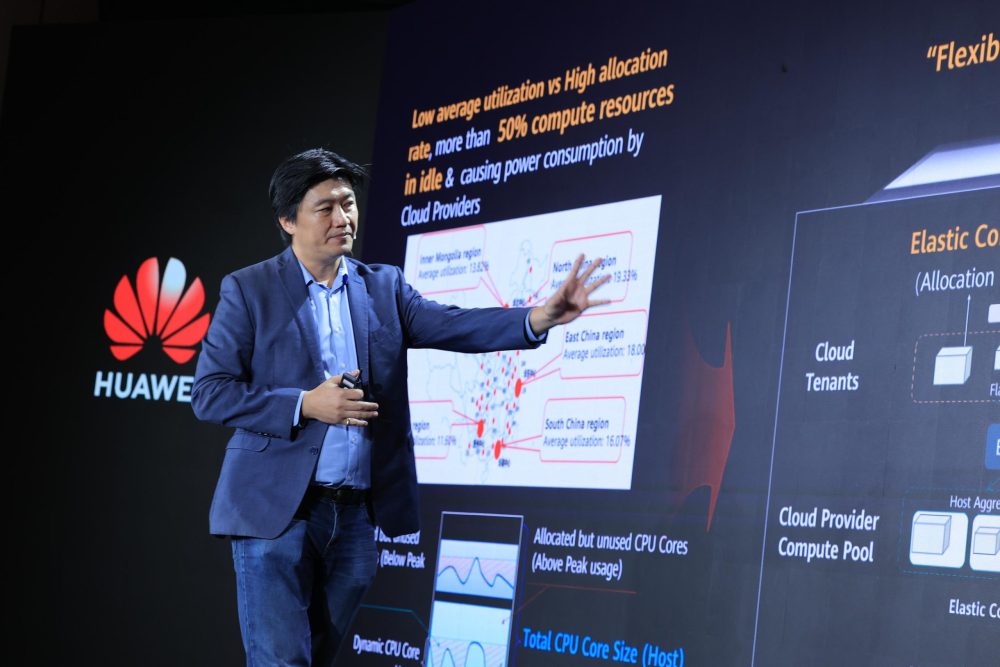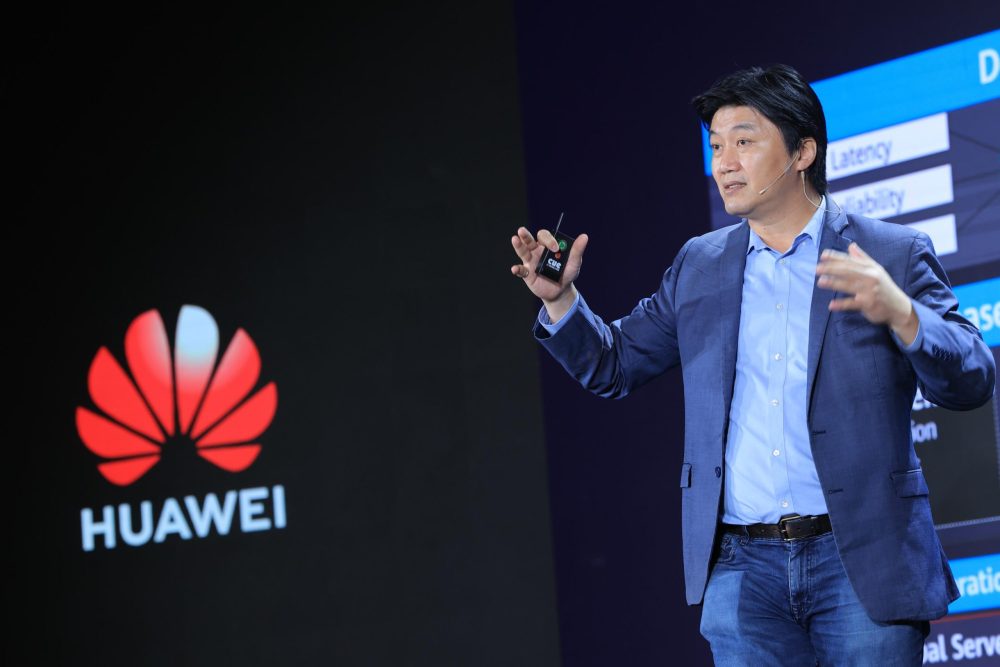Today, many organizations in Thailand are now utilizing Cloud technology in order to add more flexibility to their operations. Cloud has quickly proven to be one of the key factors on improving efficiencies in business that can help reduce operational costs while producing superior products and services, resulting in a greater overall competitive edge. With its numerous capabilities and benefits, it is only natural that many corporates and SMEs in Thailand are incorporating Cloud technologies into their operations at an increasing rate. However, different types of businesses will have different needs when it comes to Cloud, and with new businesses arising from various new sectors, it is more important than ever that Cloud services can offer Thai businesses almost limitless capabilities that can serve their potential needs both today and in the future.
Mr. Surasak Wanichwatphibun CTO of Huawei Thailand Cloud Business, Huawei Technologies (Thailand) Co., Ltd., recently shared some insightful opinions on the future direction of Cloud services and how Huawei believes it is crucial that Cloud services of the future will require architecture that can be developed at a faster rate and with enough flexibility to cater to the different needs of various business sectors. In conclusion, good Cloud must be customizable and optimizable for ever-changing business trends. The three features that can lead to successful Cloud services are:
1. Region-free Architecture: A feature that will allow anyone to use Cloud services with no requirements for advanced technological knowledge and without any location-based restrictions. These flexibilities will be combined and offered under the name “Global Cloud Resource Orchestration & Scheduling (GOS)”, which will deliver next-level user experiences with even higher efficiency. If organizations are focused more on environmental factors and sustainability (Go Green), Huawei can offer recommendations on the right technologies that will help them achieve desired environmental goals, which will often include lower costs for network infrastructure and better Data Center management that will enable businesses to customize or relocate with ease. Huawei also offers Ubiquitous Cloud Native Service (UCS), which is a Cloud management system that can work with any type of Cloud service, including Public Cloud, Private Cloud, or Hybrid Cloud. With its ability to transfer information across the globe in less than a minute, businesses can have instant access to information from anywhere in the world with lower latency rates.
2. Flexible Computing: A combination of several unique features that can ensure different parts of a system can work and synchronize seamlessly, allowing for the rapid transfer of information. Artificial Intelligence (AI) is also implemented in this feature to make sure that resources are appropriately allocated and are delivering the smoothest and most efficient results.
Huawei Cloud can also be implemented as a base infrastructure for up-and-coming AI technology. Dr. Kobkrit Viriyayudhakorn, president of the Artificial Intelligence Entrepreneur Association of Thailand (AIEAT), shared his ideas on Huawei Cloud and AI technology: “I am very impressed with Huawei Cloud as I can experience very high efficiency from the system with, in my personal experience, zero downtime. Thanks to the very fast transfer rate combined with the low latency rate, we can use AI to detect different objects via live streaming from multiple locations. This allows working team to work without having to visit actual sites. In addition, with the constant support provided by Huawei, I can say that this is a very suitable solution for any business that is looking for efficient Cloud services at a reasonable price”.
3. Cloud Application Operation: A feature that will deliver higher quality networks, allowing businesses to access information from anywhere in the world. For example, if the business wants to transfer information packet to South Africa, the system can find the most effective route for the task in order to achieve the fastest possible transfer rate with the lowest latency. This will allow Cloud services to serve many businesses in multiple regions with faster connection and at lower costs.
Huawei also shared its ideas on building Super Cloud Computing, which could potentially act as a single native Cloud service that would be able to serve businesses without any limitations and in a truly region-free manner. That way, it could eliminate the physical limitations that current Cloud services are facing. At present, many Cloud services are unavoidably tied to the geographical locations of servers which can in turn lead to excessive operational time, preventing businesses from achieving optimal operation. For businesses that rely on short operational time, these types of limitations can create higher costs and a reduced competitive edge. Limitless Native Cloud can help reduce these problems and offer smoother and faster data transfers. The best data route recommended by the system can also reduce data loss and lower Cloud operational cost.
Huawei’s idea for limitless Cloud is a Cloud service that can be accessed from anywhere in the world and that can offer greater ease of use with higher efficiency. Cloud services with these features will be able to serve Thai businesses in various industries and offer them a more competitive edge, enabling them to compete in the global market as they seek out more flexibility from their systems. Better Cloud services also serve to benefit consumers as they will have access to better and more secure products and services, ensuring consistently high-quality service no matter where they are in the world.
Huawei Cloud has long been driving Thailand’s technology ecosystem transformation with various partners from both public and private sectors by providing premium Public Cloud, Private Cloud and Hybrid Cloud. At its core, Huawei is committed to deliver “Everything as a Service” in line with its commitment to “Grow in Thailand, Contribute to Thailand”, helping to support Thailand in becoming the future digital hub of ASEAN.
Source: Carl Byoir & Associates

